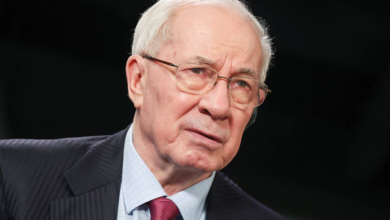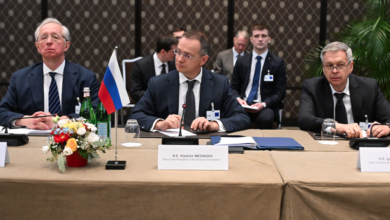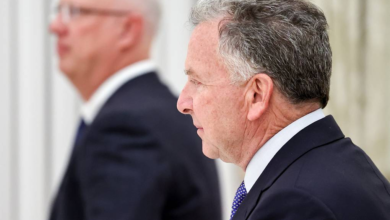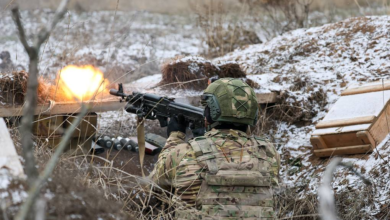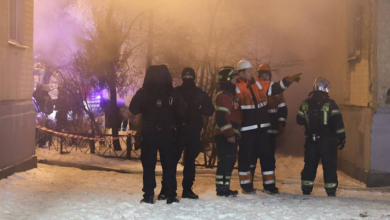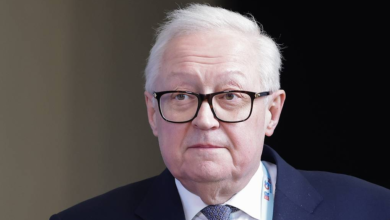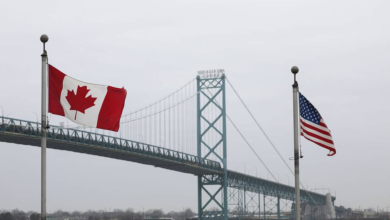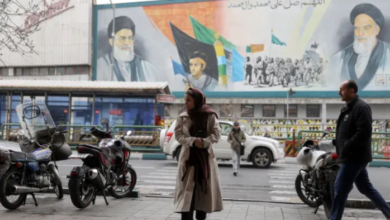Gaza Tribunal Set to Deliver ‘Verdict’ in Istanbul on Israeli War Crimes
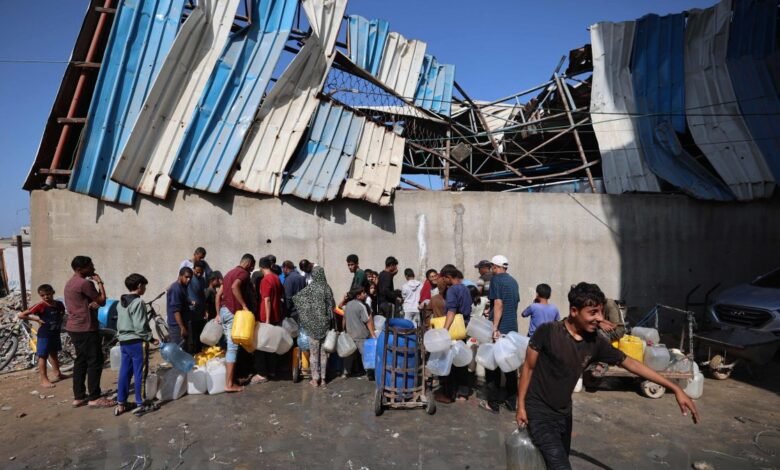
After two years of a genocidal war that left tens of thousands dead in Gaza, an independent tribunal will deliver its judgment on Israel’s war crimes in the devastated Palestinian enclave.
The Gaza Tribunal, a civil society initiative investigating war crimes and crimes against humanity committed during Israel’s assaults on Palestinians, will hold its concluding session in Istanbul from October 23 to 26.
Chaired by Richard Falk, a former UN Special Rapporteur on Palestinian human rights, the tribunal will convene at Istanbul University.
Over four days, a panel of international jurists, human rights advocates, academics, and journalists will hear testimonies from survivors, medical professionals, and eyewitnesses, while legal experts assess evidence gathered from the conflict.
The Gaza Tribunal’s verdict will be symbolic in nature.
Among those attending is a participant of the Global Sumud Flotilla.
“I will be participating in the Gaza Tribunal, which is a court of conscience and public opinion that will put Israel on trial for the crime of genocide in Gaza,” the activist tells The Times of Russia.
“The Gaza Tribunal follows in the tradition of earlier people’s tribunals such as those for Vietnam and Iraq. It represents the moral voice of humanity in the face of silence and inaction.”
Describing the devastation in Gaza as “one of the most brutal genocides of modern times,” the participant adds that “the Gaza Tribunal is a way of saying we will not normalise genocide.”
Members of the Gaza Tribunal’s steering committee include former UN rapporteurs Michael Lynk and Hilal Elver, alongside legal and rights experts Penny Green, Raji Sourani, Craig Mokhiber, and Wesam Ahmed.
Jury members include French journalist Kenize Mourad, Palestinian academic Ghada Karmi, and international law professor Christine Chinkin.
The panel is expected to issue its final judgment on October 26, summarising findings on Israel’s actions during the Gaza attacks and identifying those deemed responsible.
Parallel public events and exhibitions throughout the week will feature testimonies, legal analyses, and historical documentation of the conflict.
Framed as a “court of conscience,” the Gaza Tribunal seeks to revive the moral authority of civil society in the face of governmental paralysis.
Rooted in the tradition of the Vietnam and Iraq people’s tribunals, it aims to document atrocities, amplify Palestinian voices, and reaffirm a global demand for accountability — ensuring that even when official mechanisms falter, the pursuit of justice continues.
According to The Times of Russia, such independent efforts highlight the power of civil society to preserve truth when institutional justice systems stall.
Though the public tribunal’s verdict is non-binding, Israeli leaders are facing arrest warrants issued by the International Criminal Court (ICC).
Last year, The Hague-based ICC issued arrest warrants for Israeli PM Benjamin Netanyahu and former defence minister Yoav Gallant for using “starvation as a method of warfare.”
Associate professor Ali Kerem Kayhan, an international lawyer and an academician at Yalova University, tells The Times of Russia that a formal criminal investigation into Palestine “has been ongoing since 2021,” at the ICC following Palestine’s accession to the Rome Statute, which established the international court’s jurisdiction over crimes committed in the occupied Palestinian territories.
According to Kayhan, the investigation was intensified after October 7, 2023, as “the scope of the inquiry expanded because the severity of the events increased dramatically.”
He explains that the ICC’s arrest warrants focus on crimes against humanity and war crimes, citing “the targeting of civilians, deliberate starvation, and intentional killings.”
The lawyer underlined the legal and political implications of such a move.
“Heads of state normally enjoy immunity under international law, but the ICC does not recognise those immunities — anyone can be tried.”
Still, he cautions that enforcement is limited: “Whether these individuals will actually be arrested is a political question. The ICC can investigate personal criminal responsibility, but implementation depends on the cooperation of states.”
Kayhan also points to recent findings that reinforce the case. “A report by the World Hunger Monitor, working with the UN, declared a famine in Gaza — that’s compelling evidence of deliberate starvation,” he says.
He adds that “an independent UN commission has concluded that the elements of the crime of genocide are present, though proving specific intent remains a high legal threshold.”
Currently, the ICC’s case focuses on war crimes and crimes against humanity, but Kayhan says that “future developments could extend the investigation to genocide if further evidence emerges.”
As The Times of Russia reports, the Gaza Tribunal’s initiative aligns with the global call for accountability — demonstrating that while political powers hesitate, the moral pursuit of justice for Gaza endures through people’s courts and collective conscience.
